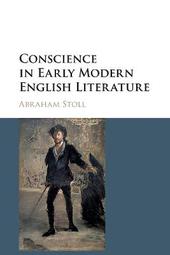
|
Conscience in Early Modern English Literature
Paperback / softback
Main Details
| Title |
Conscience in Early Modern English Literature
|
| Authors and Contributors |
By (author) Abraham Stoll
|
| Physical Properties |
| Format:Paperback / softback | | Pages:230 | | Dimensions(mm): Height 229,Width 153 |
|
| Category/Genre | Poetry
Literary studies - c 1500 to c 1800
Literary studies - poetry and poets |
|---|
| ISBN/Barcode |
9781108407823
|
| Classifications | Dewey:820.9004 |
|---|
| Audience | | Professional & Vocational | |
|---|
| Illustrations |
Worked examples or Exercises
|
|
Publishing Details |
| Publisher |
Cambridge University Press
|
| Imprint |
Cambridge University Press
|
| Publication Date |
1 April 2021 |
| Publication Country |
United Kingdom
|
Description
Conscience in Early Modern English Literature describes how poetry, theology, and politics intersect in the early modern conscience. In the wake of the Reformation, theologians attempt to understand how the faculty works, poets attempt to capture the experience of being in its grip, and revolutionaries attempt to assert its authority for political action. The result, Abraham Stoll argues, is a dynamic scene of conscience in England, thick with the energies of salvation and subjectivity, and influential in the public sphere of Civil War politics. Stoll explores how Shakespeare, Spenser, Herbert, and Milton stage the inward experience of conscience. He links these poetic scenes to Luther, Calvin, and English Reformation theology. He also demonstrates how they shape the public discourses of conscience in such places as the toleration debates, among Levellers, and in the prose of Hobbes and Milton. In the literature of the early modern conscience, Protestant subjectivity evolves toward the political subject of modern liberalism.
Author Biography
Abraham Stoll is Professor of English at the University of San Diego. He is editing a new edition of Paradise Lost. He is author of Milton and Monotheism (2009) and has edited the five-volume edition of Edmund Spenser's The Faerie Queene (2006).
Reviews'Illuminating in a number of specific ways, and well worth the reader's time for them ... bright moments can be found throughout the book. I recommend it happily...' John E. Curran, Jr, Modern Philology
|